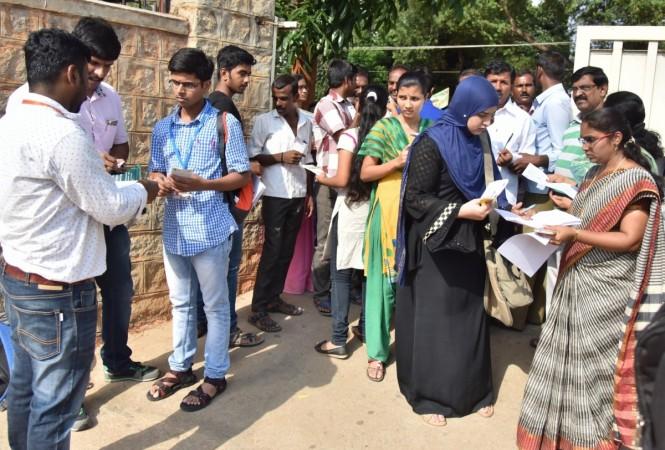
The Central Board of Secondary Education (CBSE) has announced the dress code for the upcoming National Eligibility-cum-Entrance Exam (NEET).
It issued the rules regarding the dress of the candidates 15 days in advance while releasing the admit card on Wednesday after several candidates were left baffled by the bizarre dress code in 2017.
Last year, a female candidate in Kerala was made to remove her bra as the metal detector had beeped due to the hooks on it, another girl had to take off a pocket as well as the buttons on her jeans. The examination authorities had also cut off the sleeves of the full-sleeved shirts to comply with the dress code.
Here is a list of what you can and cannot wear to the exam hall:
Frisking: Every candidate will be subjected to compulsory frisking before entering the examination with the help of highly sensitive metal detectors. They should, therefore, not carry or wear any objectionable material or cloth which might get them into trouble.

Dress code: Candidates should wear light clothes with half sleeves. The attire should not have big buttons, brooch or badge, flower etc.
Customary dress: In case someone is wearing a customary dress—like a burqa— the candidate needs to report at least an hour before the last reporting time, that is 9.30 am, so that they could be frisked properly.
Banned items: Items like wallet, goggles, handbags, belt, cap, watch or wristwatch, bracelet, camera or metallic item are not allowed.
NEET admit card 2018: Follow dress code; check things banned in exam hall - https://t.co/9PsSm2xd4A pic.twitter.com/9G9bZmsX9B
— geopost 24/7 (@gooshi2000) April 18, 2018
No jewelry allowed: Candidate is not allowed to wear ornaments like a ring, earrings, nose-pin, chain or necklace, pendants, badge, and brooch etc
No shoes allowed: Candidates cannot wear shoes inside the examination hall. Only slippers and sandals with low heels are allowed. Female candidates cannot wear close-toed footwear.
This year the NEET is scheduled to take place on May 6. NEET is an entrance exam that is conducted for students who wish to study a graduate medical course — MBBS, dental course (BDS) or postgraduate course (MD/MS) — in government or private medical colleges in India.









